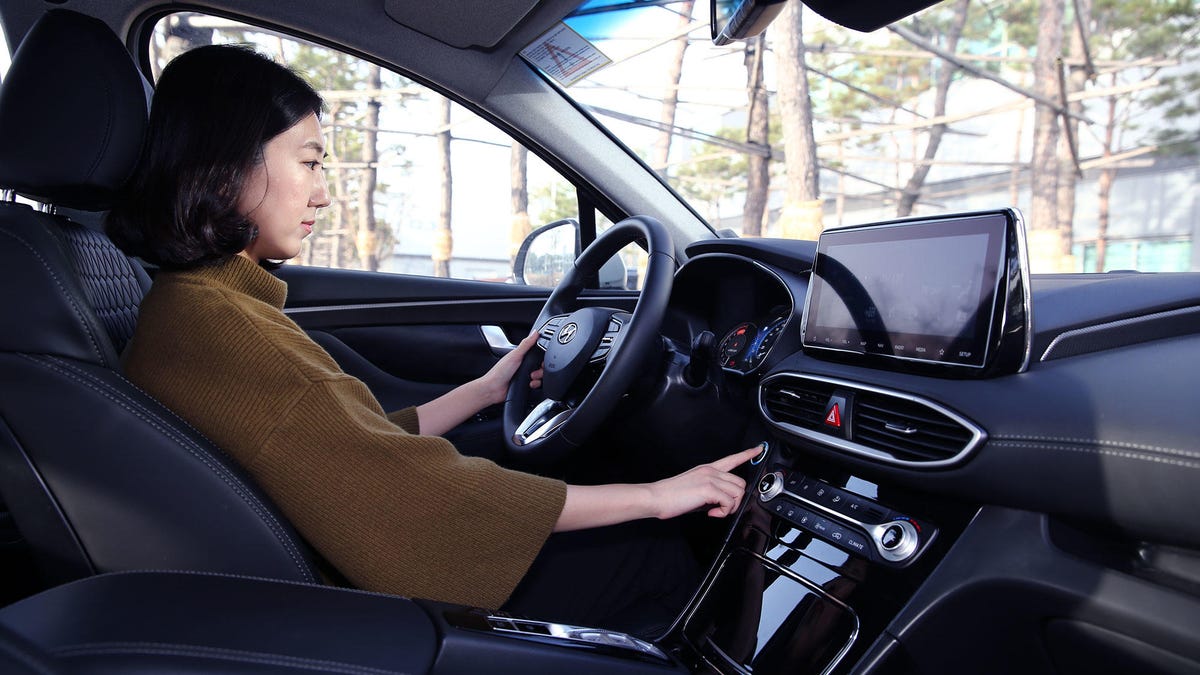2019 Hyundai Santa Fe can use a fingerprint instead of a key
Will the system work with a severed finger? Asking for some friends.
Wireless key fobs have revolutionized vehicle access, but they're far from foolproof -- swiping the remote is all it takes to snipe your ride. Hyundai thinks it has a far more secure system.
Hyundai announced this week that it will install its first fingerprint-based vehicle technology in the 2019 Santa Fe SUV. The system will comprise two separate fingerprint sensors -- one on the door handle, and one on the ignition button. A driver will have to pass both scanners to enter and start the vehicle, but it's not like it takes any extra steps, since drivers would still have to grab door handles and push start buttons with a traditional fob.
Some vehicles allow different key fobs to carry different settings, whether it's seat position, radio favorites or climate control temperature. Hyundai's fingerprint system offers the same level of personalization, but instead of being linked to a fob, it's linked to the driver's fingerprint. You may grab the wrong remote by accident, but you're not going to grab the wrong fingerprint.
Theoretically, faking a fingerprint could still grant access to the car -- or could it? According to Hyundai, the system measures capacitance across parts of the fingertip, linking that signature to the print itself. Thus, if somebody shows up at the car with a fake fingerprint, the car should be able to tell it's not the actual driver. The odds that Hyundai's tech will misrecognize a print are 1 in 50,000, the automaker says.
Hyundai says it plans to deploy the tech in select markets at first, and it's likely that the US won't join the club for some time -- Autoweek reports that China will be this tech's inaugural market. If it proves useful, it could well show up in a wide variety of future Hyundai vehicles, too. While it might be the first time this tech is used for vehicle access, Bentley has already adopted biometrics by way of an aluminum storage bin that only opens to the right fingerprint.


